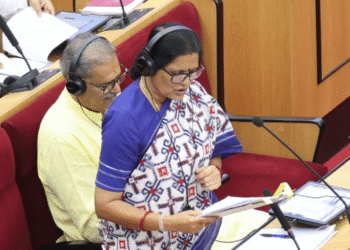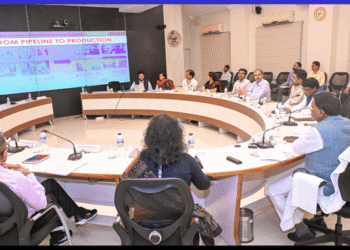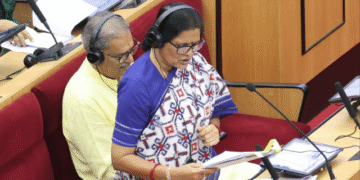New Delhi: Former Chief Justice of India (CJI) DY Chandrachud defended the Supreme Court’s ruling on Article 370, emphasizing that the provision was always intended to be transitional and eventually integrate with the Indian Constitution.
In an interview with BBC journalist Stephen Sackur, Chandrachud responded to concerns raised by legal scholars, questioning whether 75 years was too short a period to revoke Article 370. He maintained that the provision was designed to diminish over time, facilitating Jammu and Kashmir’s full integration into India.
A Constitution bench of the Supreme Court, headed by Chandrachud, on December 13 unanimously upheld the power of the President to abrogate Article 370 in August 2019.
This decision led to the reorganisation of the full-fledged state of Jammu and Kashmir into two union territories and the removal of its special privileges.
Chandrachud was asked, “Article 370 was part of the Constitution, which guaranteed the special status, the autonomy of the state of Jammu and Kashmir, now that had been out the place of the very inception of the modern state of India. You agreed that the government had a right to abrogate Article 370. Many legal scholars were deeply disappointed with your decision because they felt you had failed to uphold the Constitution. Explained to me why you took the decision you did.” Stephen Sackur also questioned how legal scholars felt that the decision failed to uphold the Constitution.
Chandrachud explained that as the author of one of the judgments in the Article 370 case, a judge must refrain from defending or critiquing their own decisions. He clarified that Article 370, originally part of transitional provisions in the Constitution, was meant to eventually fade away and merge with the rest of the Constitution.
Home » Former CJI DY Chandrachud Defends Article 370 Verdict, Calls It a ‘Transitional Provision’
Former CJI DY Chandrachud Defends Article 370 Verdict, Calls It a ‘Transitional Provision’
Follow Us
Recommended
Highlights
Trending
Over 19K Anganwadi Centres in Odisha Lack Own Buildings: Deputy CM Reveals District-Wise Data
Odisha's network of Anganwadi centres, crucial for early childhood care and nutrition, faces significant infrastructure challenges. Out...
ABOUT US
News, as it should be covered, has been the forte of Pragativadi over the years. And this has ensured a classy readership encompassing the who’s who of the state. The people who matter in Odisha, depend on Pragativadi. For opinion leaders, decision makers and people with surplus disposable income Pragativadi is a must.

© 2025 Pragativadi
























